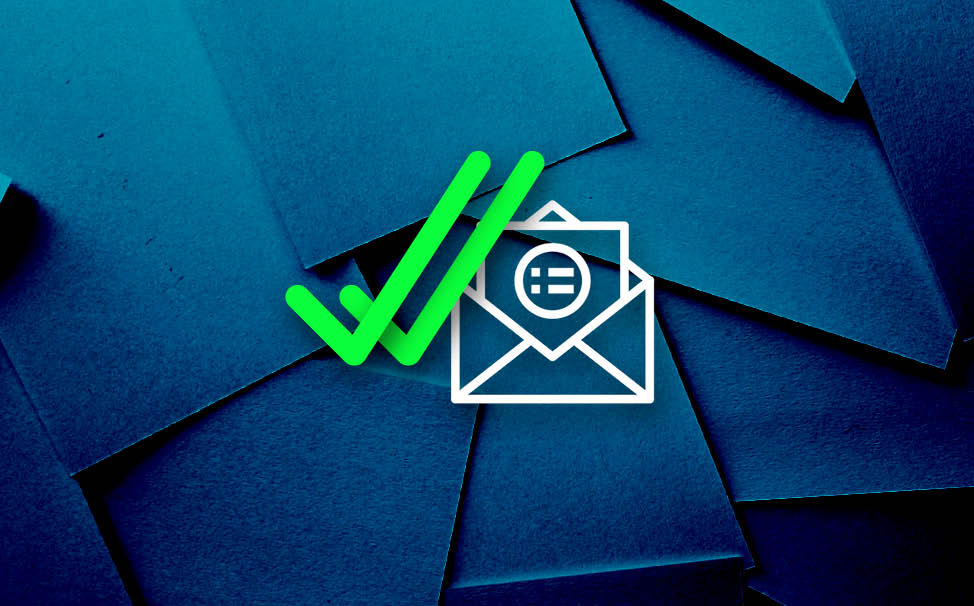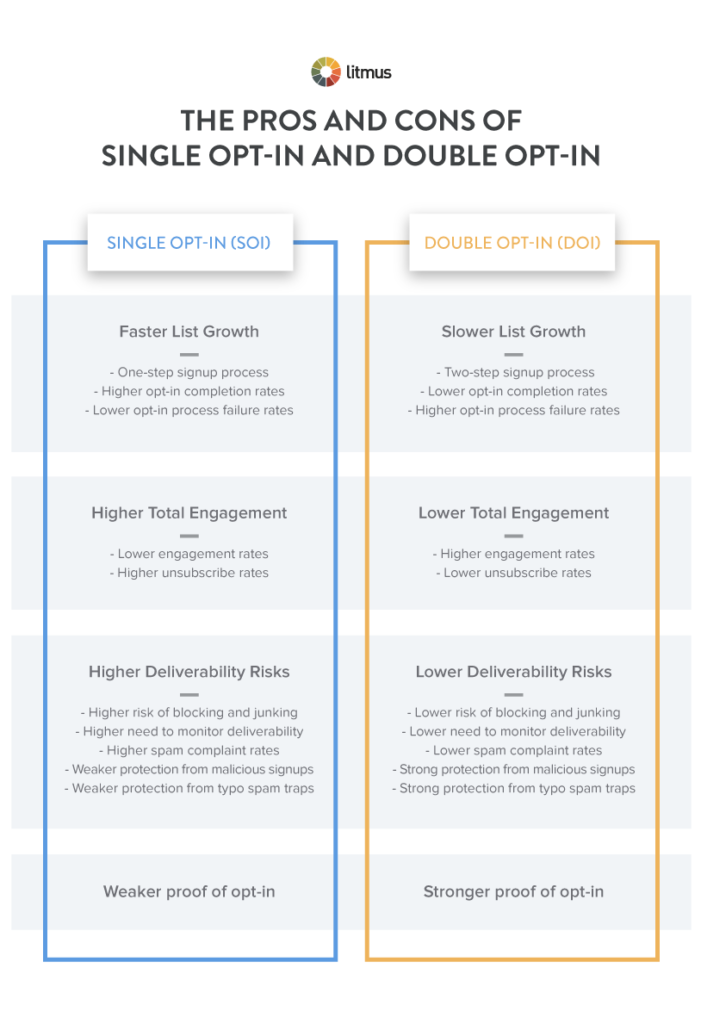
What Is Double Opt-In, and How Does It Impact Your Email Marketing?
Good digital marketing relies on good data, especially when it comes to your email lists.
Not only do you want to have the right email addresses for all of your contacts, but you also want to make sure they’ll actually engage with what you send to their inboxes.
In light of Europe’s GDPR and California’s CCPA (which started in 2020), let’s take a moment to explain the unique methods that digital marketers use to ensure quality email lists.
Data privacy regulations will continue to propagate in the near future. This moves the task of maintaining your email list from “nice to do” to “need to do.”
It’s time for marketers to pay attention.
What Is Double Opt-In?
One way to verify the identity and commitment of your contacts is called double opt-in (DOI). After a person fills out a form on your website, they need to check their inboxes to click an autoresponder email from you.
This is called a “double” opt-in process because, along with submitting the form (a single opt-in), new subscribers also need to take a second step: clicking the confirmation email.
According to HubSpot, DOI can help you create a cleaner list of contacts over time:
This extra step could be useful for generating higher-quality leads for your email campaigns. Someone who has inputted their email in a text box might not realize they’ve subscribed to your email newsletter, and feel frustrated when they begin receiving emails. By using double opt-in, you’re ensuring each site visitor wants to subscribe to your newsletters.
If your organization regularly sends marketing emails, such as offers, newsletters, or invitations, it’s important to make sure your contacts expect to see them.
In effect, DOI should allow you to minimize your number of spam complaints and maximize your number of opens and clicks from people who actually care about your content.
What About Single Opt-In?
The single opt-in (SOI) process is straightforward. In fact, it’s the most common form of email verification we see today.
When a contact fills out your form and chooses “Submit,” their information is saved in your customer relationship management (CRM) system. That’s it!
Because SOI requires only the form submission, it’s especially friendly for your mobile visitors, so they don’t need to flip back and forth between apps to confirm their subscription.
A few ways to ensure the quality of your single opt-in email list include:
- Closely monitor engagement over time.
- Filter out bad contacts.
- Provide an easy-to-find unsubscribe link in every email you send.
DOI vs. SOI: Which Method Is Better?
As with most strategies in the digital marketing world, there are two sides to this email opt-in argument.
In fact, when Litmus surveyed more than 1,000 of its own website visitors, it found a very divided field, with 53.5% in favor of SOI and 46.5% in favor of DOI.
Single and double opt-in are both secure ways to collect new conversions for your marketing funnel, but each comes with its own limitations.

In both cases, the key is permission. Mailchimp puts it concisely:
Any time someone fills out a form that says something like “By submitting this form, you agree to receive email marketing from My Company,” we call that “opt-in.” The person has opted in to receive content from your company.
Rules vary by country, but they all have one main point in common: you need to get permission from anyone you send marketing email to.
So whether you choose to go single or double, set clear expectations for the digital relationship.
With both methods, we encourage our clients and team to focus on execution, because the risks vary between DOI and SOI.
When you do DOI poorly, your confirmation rate will suffer, along with your list size. And when you do SOI poorly, your spam complaints could go through the roof, impacting your company’s email deliverability over time.
How to Ensure Your Email List Is Clean
We take data very seriously at 9 Clouds. In fact, it’s how we make decisions.
To prevent your own email marketing from deliverability setbacks, it’s important to make sure your CRM data is clean.
The best way you can ensure your email marketing is legally compliant (and ethical) is simply to ensure that every contact you email has explicitly given you permission to email them. Here are a few best practices we recommend.
Never purchase a list of email addresses.
Purchased lists are considered spam by the email community, and many email service providers (ESPs) do not allow them. Along with harming your sender reputation and email deliverability, purchased emails increase your likelihood of domain blacklisting.
Regularly cleanse your data.
By removing email addresses that have bounced or unsubscribed from your list, you’ll maintain a good sender reputation. You may also want to consider sending reengagement emails to ask disengaged contacts to opt back in. Finally, you can sanitize your list using a vendor like NeverBounce. This tool scans your email list and removes any known fake or blacklisted email addresses.
Talk to your sales team about accurate data entry.
It’s unacceptable to check Yes in the “Okay to email” field if the contact actually said No.* It’s also not enough to relay this to your team once and expect they’ll remember forever. Everyone’s human, so be sure to follow up with your team to ensure data is entered correctly at all times.
*Note that there is a distinction between transactional emails and marketing emails. If someone gives your dealership their email address as a means of direct contact (person to person), that is not the same as explicit permission to send mass marketing emails.
So, for instance, a salesperson could email a lead about a specific model they’ve asked about, but unless that lead has also given consent to receive your marketing emails, you shouldn’t send them your monthly lease offers as well.
Where to Take Your Email Next
If you’re looking for more help with your email strategy, we can help you send the best emails to the right contacts at the right time.
Our team cares about your business (and your contacts), and we want to help you market to them in the best, most ethical, most legally responsible manner possible. If you’re interested in any of the options above, or if you have any questions about email contact management in general, contact us.
Win the Inbox With Email Marketing »





